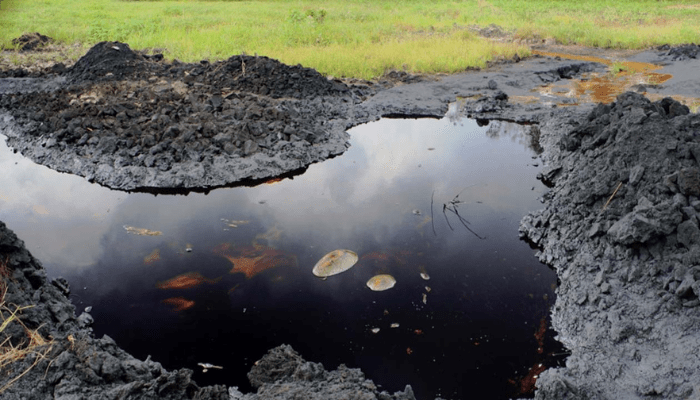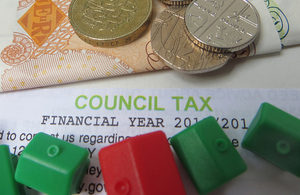Former Archbishop of York, Lord John Sentamu, calls the month-long oil spill in Nigeria ” Environmental Genocide” and calls for action

The former Archbishop of York, Lord John Sentamu, Chair of The Bayelsa State Oil and Environmental Commission today described the oil spill caused by Nigeria’s Santa Barbara river Well 1 Platform blowout, at the former Shell owned facility, in Bayelsa “an environmental genocide”.
The month-long spill of some two million barrels of gas and oil has flowed out into the surrounding rivers and waterways into the Atlantic, destroying the environment in one of Africa’s largest wetlands, as well as the livelihoods of thousands of farming and fishing communities.
The spill has been described as “worse than what happened in the Gulf of Mexico” by Governor Diri of the State of Bayelsa and has left the community of Nembe like “a war zone”, according to Nigeria’s Minister of the Environment, Sharon Ikeazor.
The site of the spill, part of Oil Mining Lease (OML) 29 block and the Nembe Creek Trunk Line, was one of the largest and most lucrative oil blocks in Shell’s Nigerian portfolio, for over 50 years. It was also the site of hundreds of oil spills and long-running battles with communities’ overcompensation and rehabilitation of spill-affected sites, until it was sold in secret to Aiteo by its subsidiary Shell Petroleum Development Company (SPDC) of Nigeria in 2015.
The leak was finally stopped on Wednesday 8th December. Lord John Sentamu welcomed the news however the Commission noted that it is critical further steps are taken urgently and immediately to both rapidly repair the environmental damage and compensate the local communities.
The BSOEC calls on Shell, Aiteo, the Federal and state governments to immediately institute a comprehensive damage assessment, clean up, recovery and restitution plan.
The current catastrophe is particularly tragic because of the way Nigeria’s oil industry has been restructured over the last decade which means that the big oil giants are absolved of historical responsibility for environmental damage.
Shifts in the ownership structure (from big oil giants to indigenous companies) have insulated new companies and their predecessors from pressures for accountability; however, they should be liable for historical spills. In January 2021, the Dutch appeals court ruled that Royal Dutch Shell was responsible for environmental pollution by its subsidiary Shell Petroleum Development Company (SPDC) of Nigeria. By failing to introduce effective tracking devices, the judgement said Royal Dutch Shell was culpable for oil pipeline leaks and ordered it to pay unspecified damages to farmers.
In addition, BSOEC calls on the Federal Government to develop new regulations on asset divestment and historical liabilities, to ensure that International Oil Companies can no longer simply walk away from the historical environmental damage they have caused.




